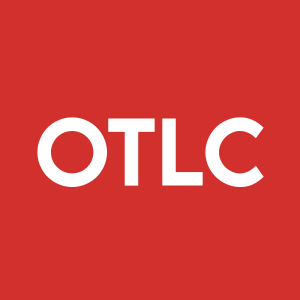Oncotelic Therapeutics Announces Publication of Landmark Study on TGFB2 Gene Methylation as a Positive Prognostic Marker in Pancreatic Cancer
Rhea-AI Summary
Oncotelic Therapeutics (OTCQB: OTLC) has published a groundbreaking study in the International Journal of Molecular Sciences identifying TGFB2 gene methylation as a positive prognostic biomarker for pancreatic ductal adenocarcinoma (PDAC). The research, conducted in collaboration with Sapu Biosciences, revealed that patients with high TGFB2 methylation and low immune markers showed a significant median overall survival exceeding 50 months.
The findings support the development of OT-101, Oncotelic's investigational antisense oligonucleotide targeting TGFB2 mRNA. The study utilized PDAOAI, the company's AI-powered chatbot platform, for literature mining and analysis, demonstrating the integration of artificial intelligence in scientific research.
Positive
- Discovery of TGFB2 methylation as a positive prognostic biomarker for PDAC survival
- Significant survival benefit observed - over 50 months median overall survival in specific patient groups
- Findings support further clinical development of company's drug candidate OT-101
- Successful implementation of AI platform PDAOAI in research analysis
Negative
- Company trades on OTCQB market, indicating smaller market capitalization and potentially lower liquidity
- PDAC remains one of the most lethal malignancies with limited treatment options
News Market Reaction – OTLC
On the day this news was published, OTLC gained 0.67%, reflecting a mild positive market reaction.
Data tracked by StockTitan Argus on the day of publication.
AGOURA HILLS, Calif., June 25, 2025 (GLOBE NEWSWIRE) -- Oncotelic Therapeutics, Inc. (OTCQB: OTLC) ("Oncotelic" or the "Company"), a clinical-stage biopharmaceutical company focused on RNA-based therapeutics, today announced the publication of a peer-reviewed research article highlighting TGFB2 gene methylation as a positive prognostic biomarker for pancreatic ductal adenocarcinoma (PDAC). The paper, published in collaboration with Sapu Biosciences, LLC (“Sapu”), a wholly owned subsidiary of GMP Biotechnology Limited (“GMP Bio”), in which Oncotelic owns a
Access the publication online at: https://www.mdpi.com/1422-0067/26/12/5567
The study was co-authored by Dr. Sanjive Qazi, Dr. Michael Potts, Scott Myers, Dr. Stephen Richardson, and Dr. Vuong Trieu.
Key Findings
PDAC remains one of the most lethal malignancies with limited treatment options, typically restricted to cytotoxic regimens like FOLFIRINOX. This study identifies DNA methylation signatures of the TGFB2 gene as a novel biomarker for improved overall survival, particularly in immunosuppressed tumor microenvironments characterized by low CD8+ T-cell infiltration.
Notably, patients exhibiting high TGFB2 methylation along with low expression of immune markers such as CD3D, LCK, and HLA-DRA demonstrated a highly significant median overall survival exceeding 50 months. The data suggest that TGFB2 methylation is a favorable prognostic indicator and may inform patient stratification for therapies targeting TGFB2 mRNA—such as OT-101, Oncotelic’s investigational antisense oligonucleotide.
In addition, the study underscores the importance of profiling TGFB1, TGFB2, and TGFB3 methylation to better characterize tumor immune status and select candidates for immunotherapy in otherwise resistant “cold” tumors.
Leadership Commentary
“Our latest discovery significantly enhances our understanding of the TGFB gene complex in PDAC, particularly in immunologically cold tumors,” said Dr. Sanjive Qazi, lead author. “These results support further clinical development of OT-101 in PDAC, especially among patients with low T-cell infiltration and high TGFB2 methylation.”
“PDAOAI, our AI-powered chatbot platform, played a pivotal role in the literature mining and analysis for this paper,” added Scott Myers, Product Manager. “The integration of AI into the scientific process is accelerating discovery.”
“Large language models like PDAOAI are transforming how we identify, extract, and interpret biomedical insights,” said Dr. Michael Potts, VP of Data Science at Oncotelic.
The underlying source data and referenced literature used in the manuscript are accessible via Oncotelic’s proprietary AI platform, PDAOAI. Engage with the research on the public PDAOAI Discord community.
About Oncotelic
Oncotelic (f/k/a Mateon Therapeutics, Inc.), was formed in the State of New York in 1988 as OXiGENE, Inc., was reincorporated in the State of Delaware in 1992, and changed its name to Mateon Therapeutics, Inc. in 2016, and Oncotelic Therapeutics, Inc. in November 2020. Oncotelic is seeking to leverage its deep expertise in oncology drug development to improve treatment outcomes and survival of cancer patients with a special emphasis on rare pediatric cancers. Oncotelic has rare pediatric designation for Diffuse Intrinsic Pontine Glioma (“DIPG”) through OT-101 through its
Oncotelic's Cautionary Note on Forward-Looking Statements
This press release contains forward-looking statements within the meaning of the Private Securities Litigation Reform Act of 1995. All statements, other than statements of historical facts, included in this communication regarding strategy, future operations, future financial position, prospects, plans and objectives of management are forward-looking statements. Words such as "may", "expect", "anticipate" "hope", "vision", "optimism", "design", "exciting", "promising", "will", "conviction", "estimate," "intend," "believe", "quest for a cure of cancer", "innovation-driven", "paradigm-shift", "high scientific merit", "impact potential" and similar expressions are intended to identify forward-looking statements. Forward looking statements contained in this press release include, but are not limited to, statements about future plans related to the operations of the JV, taking the JV into an initial public offering or the success thereof, the progress, timing of clinical development, scope and success of future clinical trials, the reporting of clinical data for the company's product candidates and the potential use of the company's product candidates to treat various cancer indications as well as obtaining required regulatory approval to conduct clinical trials and upon granting of approval by the regulatory agencies, the successful marketing of the products; building and the success of our nanoparticle platform and the related success of launching the platform, the success of the launch of a company with a DAO infrastructure, the success of the entity and the plans surrounding the pet and animal health, the ability for the Company to register the tokens of Pet2DAO, the actual filing of a registration statement and approval of the PDAO, or any other tokens that we may launch, as registrable securities with the SEC through a registration statement, the ability of the tokens to be tradable or any value such tokens may have if they become tradable.. Each of these forward-looking statements involves risks and uncertainties, and actual results may differ materially from these forward-looking statements or may not occur at all. Many factors may cause differences between current expectations and actual results, including unexpected safety or efficacy data observed during preclinical or clinical studies, clinical trial site activation or enrollment rates that are lower than expected, changes in expected or existing competition, changes in the regulatory environment, failure of collaborators to support or advance collaborations or product candidates and unexpected litigation or other disputes, taking the Company or its affiliates through initial public offerings. These risks are not exhaustive, the Company faces known and unknown risks, including the risk factors described in the Company's 2024 Annual Report on Form 10-K filed with the SEC on April 15, 2025 and in the company's other periodic filings. Forward-looking statements are based on expectations and assumptions as of the date of this press release. Except as required by law, the company does not assume any obligation to update forward-looking statements contained herein to reflect any change in expectations, whether because of new information, future events, or otherwise.
Contact Information:
For Oncotelic Therapeutics, Inc.:
Investor Relations








